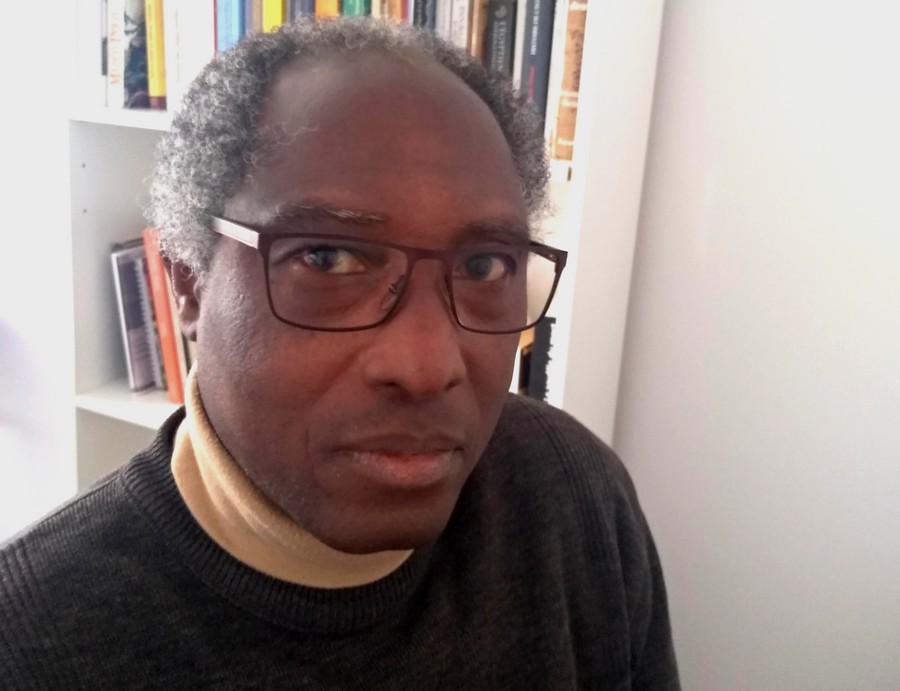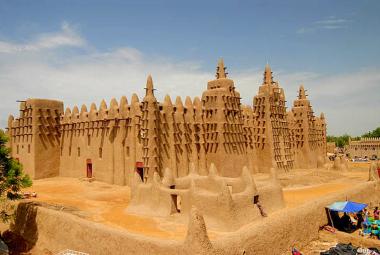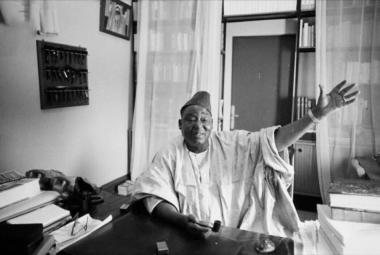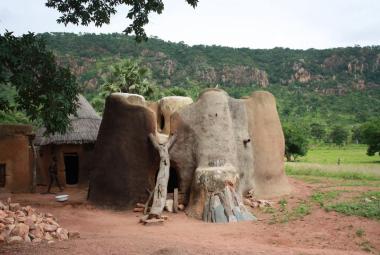In TRIBUNE: Negritude to the aid of Afropeanity (Part One): https://www.afriquedestinations.com/fr/tribune-la-negritude-au-secours-… published in AFRIQUE Destinations, Professor Kalamba Nsapo Research Director at INADEP University Faculty of Protestant Theology of Brussels CARES Research Center writes:
“Before the birth of French and English, we know the use of the expression Nigra sum taken from the Song of Songs. And Nigra and formosa is a title of Isis. In the 19th century, certain Egyptologists rendered the name of Kemet or Ancient Egypt by Nigritie or Niger. Then came the time of colonization. We began to get rid of the Latin translations. The former Nigritie or Niger bore exclusively the name of Egypt. In view of the above, Negro turns out to be a word that existed before the existence or historical emergence of Belgians, French, English, Spanish, Portuguese, Germans, etc. The term is neutral and positive in relation to “black” or “black” (Africamaat 2005). Should the negritude related to it be a fixed reality, of an essentialist nature, incapable of contributing to the rebirth of Africa? Some people think so”.
It is important for me to dwell on the origin of the name NIGER which comes from the same root as that of NIGERIA. And to say loud and clear that I reject the etymological explanations hitherto proposed by each other. Which, in my opinion, lack consistency both historically and linguistically.
In its article entitled, Jeune Afrique writes “Niger, in Latin, means “Black”. From this flow, in all European languages, the words revolving around this color, including to evoke men qualified as black. The negro and the nigger (“nigger”) of the Americans have the same etymology.
Certainly, the Romans speak of Nigritae to evoke Black Africans. But, contrary to what one might think, the name of the river that flows between Guinea and Nigeria, passing through Mali and Niger, does not have the same origin.
The Tuaregs, considering it the river par excellence, had long baptized it egerou n-igerou, "the river of rivers" in Berber. The Arabs took up this expression, translating it into nahr al-nahr. The confusion comes from the geographer Léon l'Africain who, in his Description de l'Afrique (1526), confused the Latin niger and the Berber n-igerou".
Wikipedia, for its part, writes: “(Date to be specified) From the Latin Niger or Nigris; the name of the river is probably derived from a Semitic language and from the root *nghr (“river”), compare with Arabic نهر nahr, Hebrew נהרא nahrā’. »
In his article entitled What do the names of African countries mean [3/4: from M to S] (https://www.rfi.fr/fr/afrique/20190711-noms-pays-afrique-origine-signif… -madagascar-sao-tome-principe), Radio France Internationale (RFI) writes:
“Niger / Nigeria
The Niger River, Djoliba in Mandinka, is one of the most important in the Sahel and in Africa – the third in length after the Nile and the Congo. Its name comes from n'eghirren, "flowing waters" in Tamasheq, the Tuareg language. He gave his name to the present-day Niger and Nigeria, unrelated to the Latin niger, "black", which is also the root of the word "negro".
In Ancient Nubian, Black is intrinsically associated with Charcoal. But it is equally so with Water, through not only the Clouds but also the Water which flows abundantly. Finally, to be more precise, Black is just as much the color of Coal as of Clouds in the metaphorical language of the Initiates which will be known later by Mdw Ntr (Médou Nétjer) - Words of God or Holy Scriptures or even Divine Scriptures in the Pharaonic Egypt.
Contrary to what has been said and believed in this regard, the old word which designates the Black is intimately linked to Water and therefore to the Watercourse in the old Niger-Congolese Languages (LNC). And the fundamental root remains the Noun. In one of my works I explained that NUN-YERI = NIGER (Nun being the flowing water and Yeri the Field or the Passage or the Space it borrows). The Nun of Nigeria and the Nun of Cameroon have the same semantic origin, as does the Nun of the Nile Valley and all the Nun of the Niger-Congolese languages. If Noun indicates water or any flowing liquid, Nya is the prefix to specify that it is water. Hence NYILO from which the word NILE is taken to designate the River as I have already explained many times. The root NI is still omnipresent in the so-called Gour languages of West Africa. NIKKI, the Imperial Capital of the Baatombou of Benin Republic and Nigeria, takes its name from this same root which indicates water at first glance.
The names Niger and Nigeria do not come from the Tuaregs or the Berber. Far from it. We should take it for granted. The peoples who occupied both the Nun of Cameroon and the Nun of Nigeria and who thus baptized these areas of occupation are peoples of Niger-Congolese Languages. And it is to them that we owe the names of Niger and Nigeria to the countries that bear them today.
The nghr, which is said to be Semitic, is only Ancient Egyptian and more anciently Ancient Nubian, if you look closely. Which amounts to saying NUNGU-YERI. It is enough to invoke the Comparative Vocabulary "ancient Egyptian - pulaar4", taken from Aboubacry Moussa Lam, The paths of the Nile: relations between ancient Egypt and black Africa, Paris, Presence Africaine & Khepera, 1997.: http ://www.ankhonline.com/langue_egytienne_pharaonique_lexique.pdf (Vocabulaire comparé « égyptien ancien – pulaar4 », tiré de Aboubacry Moussa Lam, Les chemins du Nil : les relations entre l’Égypte ancienne et l’Afrique noire, Paris, Présence Africaine & Khepera, 1997. : http://www.ankhonline.com/langue_egytienne_pharaonique_lexique.pdf) to establish the evidence.
Nahouri is the name of a Province of Burkina Faso. Some might think it was a coincidence with the Hebrew name. No coincidence. The Hebrews, having left Ancient Egypt, took with them the culture and language of Ancient Nubia via Ancient Egypt. I have already recalled this in an Open Letter in 2023 to Prime Minister Benjamin Netanyahu of Israel. By insisting that the name NETANYAHOU is an authentically Nubian, even tribal name, and that one cannot wear it without having distant Nubian origins. In Ancient Nubia, it was the name that was systematically attributed to the Priest-Sacrificer. It is composed of NET –YA –NYAHOUN or NOUN-YET-YA-NYAHOUN. It is also the same for the names of the Patriarchs who are fundamentally Nubian. There are plenty of scholars in the Jewish world in all fields to have the courage to acknowledge this: the Ancient Hebrews were originally a group of Ancient Egyptians. The Province of Nahouri in Burkina Faso is located in the ancient Cradle of the Nanumba in the North of Ghana.
The Natemba says today WAFA-YAHOUN for the same name. Quite simply because in the metaphorical language of the Ancient Initiates, WAFA (the Serpent or the Dragon) means NET or NOUN-YET (the River or the Watercourse).
It should be noted that WAFA or OUAFA is the elliptical form of WA(NOUN)FA or OUA(NOUN)FA and WA or OUA is another synonym for Water (OUA or WA = NYA) both in Ancient Nubian and in the language of the Natemba. The latter who are a People of the North-West of Benin also have for Cousins in particular the WASSANGARI or OUASSANGARI of Nigeria and Benin Republic with whom they share the same distant origin. Need we remind one again, in Pharaonic Egypt, WA or OUA is a concept belonging to the register of the Divine. The concepts of OUADJOUR (the "Great Green") which is the personification of an aquatic environment, of OUADJYT which designates the goddess Cobra (Snake), of OUAS the symbol of Divine Power and of OUASET which is the personification of the city of Thebes say enough about it.
It should certainly not be forgotten that it was in the Nun of Nigeria that the Wassangari or Proto-Mossi or the Luo of West Africa of the migration better known as the Kissira Migration split into two groups between those who settled there permanently and those who continued on the road to settle, initially, on the left bank of the Niger River near Niamey. The name Nigeria could therefore, by logical deduction, be inherent in the fact that these peoples who called themselves NOUNMA or NOUN-OMA = NUBIANS should consider this country as their ancestral home NOUN-YERI-YA = NIGERIA. The term YA being associated with Anteriority, Ancestor, Elder, etc. when it does not mean in the first degree: to go, place, move, etc. They are the descendants of these same NUNMA or NUN-OMA = NUN-ON-BA = NUNBA = NUBIANS who will be known under the name of NA-NUMBA in the North of Ghana before their division into three autonomous ethnic groups later and which we call today: Nanumba, Mamprusi, Dagbomba. NA being the name of the charismatic leader and Prince who led the rest of the group of migrants to the left bank of the Niger River near Niamey.
Mungo Park was a British explorer, of Scottish origin, born in Fowlshiels in Scotland on September 11, 1771 and who died in Boussa in Nigeria in 1806. In Chapter V of Mungo Park: his life and his travels / H. Feuilleret (https://gallica.bnf.fr/ark:/12148/bpt6k5713244r/texteBrut), the famous explorer Mungo Park testifies as follows: “In the south of great desert of the Sahara, from the Nile basin to the Atlantic Ocean and, so to speak, across the whole of Africa, stretches from east to west a strip of land with an average width of six hundred fifty kilometers and a length of four thousand six hundred kilometers, which is designated under the name of Nigritia, and to which the Arabs have given the name of Sudan, and the natives that of Takrour. But these three words, so different in form, express the same country and mean: THE COUNTRY OF THE NEGROES.”
Mungo Park had to make two trips to West Africa. During the first, from 1795, he brought valuable testimonies to the African Association in London. His book Travels in the Interior Districts of Africa; Performed under the Direction and Patronage of the African Association in the years 1795, 1796 and 1797, brings an impact to its exploration missions. Nevertheless the first expedition leaves him on his hunger or his thirst for knowledge about the Niger River: “It is however very likely that Niger provides safe and easy communication to nations very far apart from each other [...] [ the] merchants themselves don't know, it seems to me, where the Niger ends [...] saying only that they believe it goes to the end of the world”.
During the second, which began in 1803, he decided to go further, where no one else before him had yet managed to go on the Niger River, in search of its sources. And it is Boussa, in the territory of these famous Wassangari or Proto-Mossi migrants or Luo from West Africa that we will lose our traces. He will therefore not have succeeded in unraveling the mystery of the Niger River, like two others before him. In this case the names Houghton and Lucas. Between the version according to which he fell into an ambush with his companions and that of an accidental fall in the the rapids of the Niger River, Mungo Park's death remains a mystery to this day.
By Marcus Boni Teiga




















